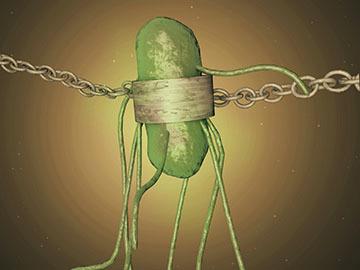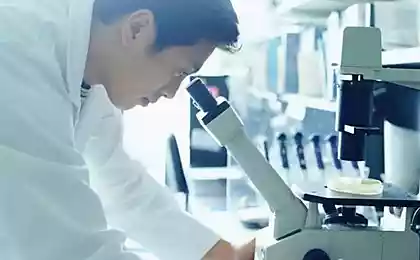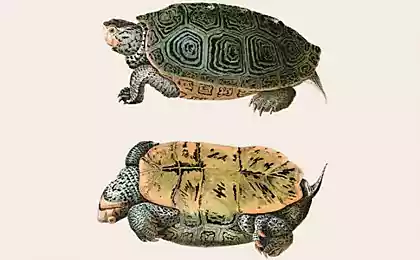806
Biological "lock" for artificial organisms

Genetically modified or completely synthetic organisms inspire much hope, but at the same time and carry some risk. Although the risks are usually exaggerated, but still there is a chance that came out from under the control of a synthetic organism change the existing ecosystem.
Physical isolation in laboratories and industrial facilities is not enough: the quarantine may be broken due to human error, technological accident or natural disaster. In addition, some organisms are specially designed in order for them to work in an open environment.
Therefore, bioengineers are now actively working on the introduction of special protective mechanisms, which will not allow a virus or bacteria exist in the environment for which it is not programmed. One such mechanism is described in Research , which is January 21, 2015 published in the journal Nature.
The authors - a group of geneticists at Harvard Medical School, led by Professor George Church's (George Church). In 2013 they created a the world's first body to recode genome (Genomically Recoded Organism, GRO).
Then the scientists were able to encode several codons in genes so that these codons encode steel other amino acids, but not those that are inherent in their nature.
Now, the same group of scientists presented the mechanism of biological protection. They were able to implement the various portions of the genome artificial protein without which E. Coli can not transmit its RNA into proteins. A total of 49 regions of the genome is modified to create a solid body from the dependence of the substance. The highlight that this artificial protein does not exist in nature, and the bacterium may never get it, except in the special reproduction in a laboratory culture.
Thus, the reliable control of a body - with a guarantee that he will not be able to survive in the wild. According to experts, the world's first practical example of the use of the strategy to create artificial depending on synthetic substances to control the living organism.
However, this strategy is well-known for the TV series Star Trek: The Dominion is so controlled synthesized race Jem'Hadar soldiers.
Church and his colleagues raised about 1 trillion bacteria E. Coli, dependent on artificial substances, and for two weeks none of them managed to escape from prison. "This is 10 000 times higher than the recommendations to the probability of escape of organisms GMOs established by the National Institute of Health, USA», - said Professor Church.
Source: geektimes.ru/post/244676/
Theoretical calculations predict the effect of self-acceleration of elementary particles
Overview Speakerphone Jabra Drive























